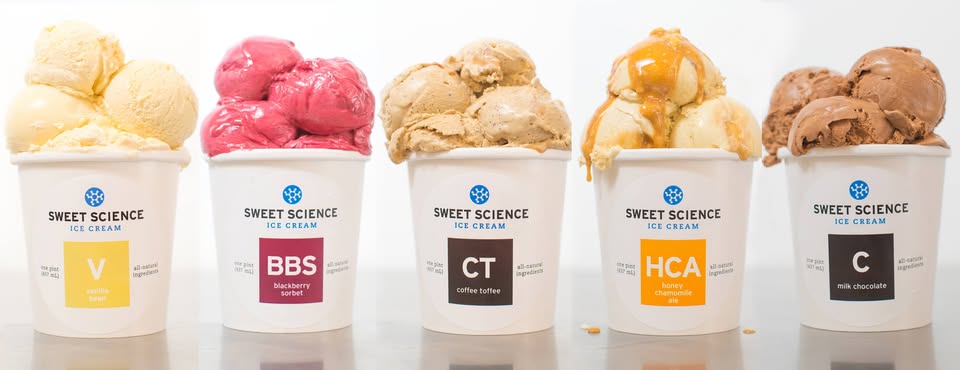“Locally sourced” is a powerful label that resonates with today’s consumers and retailers alike. It signals freshness, community support, and sustainability. But with no universal standard defining “local,” the term is often stretched or misused—making it tricky for retailers to know which products truly fit the bill.
At Cohere Commerce, where retailers share honest feedback about brands and their performance in stores, we’ve seen firsthand how “locally sourced” claims impact buying decisions—and how retailers are getting smarter about verifying those claims.
Why “Local” Matters So Much
Consumers want to support local economies, reduce environmental impact, and enjoy fresher, higher-quality products. For retailers, offering truly local products can:
- Build stronger connections with their communities
- Boost customer trust and loyalty
- Differentiate their shelves with authentic stories
But without clear definitions, “local” can become a marketing catchphrase that leaves both retailers and customers skeptical.
Local Brands to Watch Out
1. Sweet Science
_(1).jpg%3Ftable%3Dblock%26id%3D20af839f-f90e-80bb-9c88-e0179c76006d%26cache%3Dv2)
A St. Paul-based, women-owned ice cream company known for all-natural, locally sourced ingredients and bold, small-batch flavors.
Retail Performance Overview:
Sweet Science Ice Cream holds a steady, loyal following across Kowalski’s locations, with customers appreciating its premium quality, rich flavors, and smooth texture. While it’s not a top-seller, the brand’s unique and innovative flavor combinations create a distinct identity that keeps a core group coming back. Retailers note the product is priced at a premium level and packaging could be stronger, but the excellent product quality and consistent in-stock status make it a valued offering despite modest sales velocity.
2. Kea Beverages
_(1).jpg%3Ftable%3Dblock%26id%3D20af839f-f90e-80b4-aba5-c7da7b59c6da%26cache%3Dv2)
An Atlanta-based brand crafting healthy, non-alcoholic drinks like kombucha, cold brew, and probiotic sodas. Rooted in the West End, they focus on flavor, wellness, sustainability, and community, with standout flavors like Peach, Hibiscus & Lavender, and Prickly Pear & Mango.
Retail Performance Overview:
Kea Beverages enjoys solid sales and strong customer loyalty across diverse retail settings, praised for its authentic, attractive packaging and fair pricing within the kombucha category. Retailers appreciate the product’s quality and local appeal, highlighting popular flavors like lemon hibiscus and the cold brew variation. While some stores note a desire for more flavor variety and a preference among some customers for glass bottles, overall the brand is well-regarded for consistent in-stock availability, responsive service, and effective merchandising, though a few retailers mention minor service communication annoyances.
3. Ranch Fuel
_(1).jpg%3Ftable%3Dblock%26id%3D20af839f-f90e-80fa-bdea-fb9a086cf711%26cache%3Dv2)
A clean energy drink promoting focus and endurance, inspired by the cowboy lifestyle and western sports. Marketed as "America's Energy Drink" and a tribute to the western way of life.
Retail Performance Overview:
Ranch Fuel has received positive feedback for its smooth, less acidic taste and distinctive flavors that appeal to a loyal customer base. It competes well with major energy drink brands, especially when placed in coolers or featured in sampling events. Pricing is generally considered fair, though slightly higher than some competitors, and packaging is clean but could benefit from more eye-catching design. Retailers appreciate reliable stock levels and note that Ranch Fuel often sells faster than comparable brands in similar store settings. Many suggest that increased marketing support and refreshed branding would help the product gain wider recognition and further boost sales.
4. Kosmo's Q
_(1).jpg%3Ftable%3Dblock%26id%3D20af839f-f90e-803d-b9b2-d329ab1438a2%26cache%3Dv2)
A barbecue brand born in 2009 as a passion project, now offering sauces, rubs, dips, powders, and injections. Built around a strong community, they focus on delivering competition-worthy flavors and empowering BBQ enthusiasts to elevate their craft.
Retail Performance Overview:
Kosmo’s Q continues to perform well across a wide range of retailers, driven by strong customer loyalty, standout packaging, and consistently high product quality. While pricing is seen as slightly premium, it’s generally viewed as fair given the flavor variety and brand recognition. Availability is rarely an issue, and while most stores haven’t received direct demos or samples, many report solid sales regardless—especially when supported by in-store tastings or seasonal promotions.
Retailers Speak: Defining “Local” in the Real World
Through thousands of reviews on Cohere Commerce, these key themes emerge about what retailers look for when evaluating local sourcing claims:
1. Geographic Boundaries — What Counts as ‘Local’?
Retailers vary, but many expect local to mean products sourced within a tight radius—often 50 miles or less.
2. Transparency About Origins
Brands that clearly disclose ingredient sources win more trust. Vague or generic claims like “local flavors” without specifics often raise eyebrows.
3. Authentic Storytelling
Packaging and marketing that highlight farmers, production methods, or local heritage help retailers—and customers—connect emotionally with the product.
4. Third-Party Verification
Certifications or partnerships with local organizations give retailers confidence in a brand’s claims.
When “Local” Claims Miss the Mark
Retailers also shared cautionary tales:
- Customer doubt: When products don’t match the “local” story customers expect, trust and sales suffer.
- Supply challenges: Local producers may struggle with consistent availability, frustrating retailers.
- Higher prices: True local products can be pricier, requiring retailers to balance cost with demand.
Retailers use Cohere Commerce to get honest peer feedback on brand authenticity, supply reliability, and whether “local” claims hold true.
Tips for Evaluating Local Claims
- Ask brands for detailed sourcing info.
- Look beyond labels to the brand’s local story.
- Test products in small batches.
- Confirm supply consistency.
- Use retailer reviews on Cohere Commerce for guidance.
Conclusion
“‘Locally sourced’ goes beyond marketing—it’s about delivering products that truly reflect your community’s values. With informed questions and honest retailer feedback, you can confidently choose brands that bring authentic local impact to your shelves.”
Discover authentic retailer reviews and local brands at Cohere Commerce today.
_9c3d74_.png)

